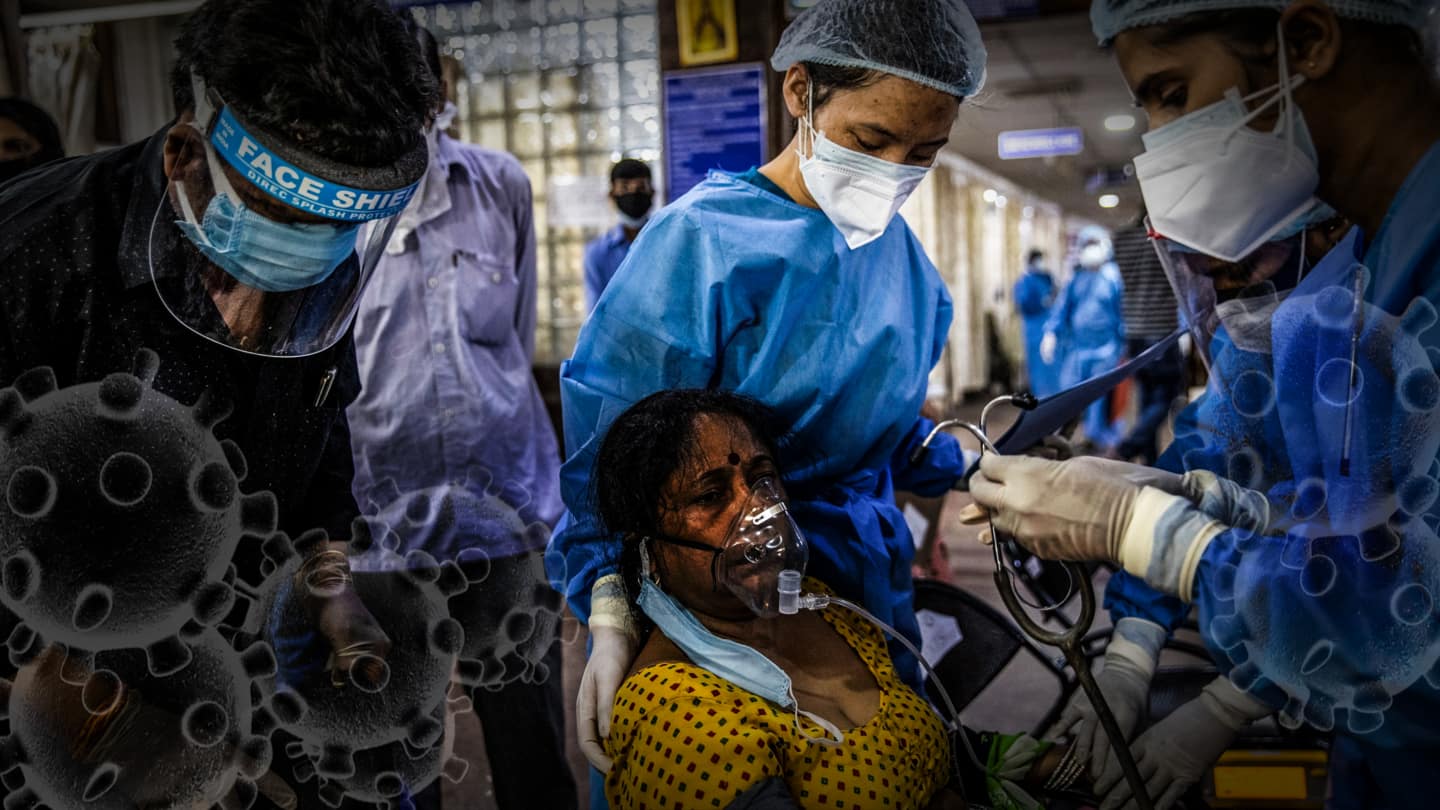
Coronavirus: India reports 1.32L cases; Delta variant blamed for spike
What's the story
Despite a slow down in India's grim second wave of COVID-19, the country continues to report a high number of infections and deaths.
India on Friday reported 1.32 lakh new COVID-19 cases, along with over 2,700 deaths.
A study has now claimed that the Delta variant of the coronavirus SARS-CoV-2, first detected in India, is responsible for the second wave.
Here are more details.
Statistics
India's tally reaches 2.85 crore; 3.40 lakh dead
According to the Union Health Ministry, till Friday morning, India reported a total of 2,85,74,350 COVID-19 cases. The death toll has reached 3,40,702.
So far, 2,65,97,655 patients have recovered, while 16,35,993 cases involve active infections.
In the past 24 hours alone, India recorded 1,32,364 new infections, 2,07,071 more discharges, and 2,713 fresh fatalities.
22,41,09,448 vaccine doses have been administered so far.
States
24K new cases in Tamil Nadu
Maharashtra reported 15,229 new COVID-19 cases along with 25,617 more recoveries.
Karnataka, the second worst-hit state after Maharashtra, reported 18,324 new cases and 24,036 discharges.
Meanwhile, the third worst-hit Kerala added 18,853 new cases and 26,569 recoveries.
Tamil Nadu, the fourth worst-hit state, reported 24,405 new cases and 32,221 recoveries.
Andhra Pradesh reported 11,421 new cases and 16,223 recoveries.
Variant
Delta variant primary cause of second wave: Study
The Delta variant of the coronavirus (B.1.617.2 strain) is the primary cause of the second wave of COVID-19 in India, a study has found.
The study was conducted by scientists of INSACOG and the National Centre for Disease Control (NCDC).
The study found that the Delta variant is 50% more transmissible than the Alpha variant (B.1.1.7) and that India has 12,200 'Variants of Concern'.
Information
Prior infections can provide significant protection from reinfection: Study
Separately, a study of care home residents and staff by University College London (UCL) scientists found that a prior COVID-19 infection can reduce the risk of reinfection by approximately 85%. Among staffers, those who had been infected were 60% less likely to be reinfected.
Vaccination
Only 7.5% vaccine doses administered at private centers
On a related note, private vaccination centers account for only 7.5% of total doses administered, despite having a 25% quota as per the Centre's vaccination policy.
A relatively higher proportion of private center vaccinations was observed in a few urban pockets, however, in almost 80% of districts, 95% of doses were administered by the public sector, an analysis by The Times of India found.
Other developments
India among beneficiaries of US vaccine aid
Meanwhile, tnhe United States has announced a plan to distribute an initial 25 million vaccine doses and India is among the beneficiaries.
Additionally, Reliance Industries Ltd's R&D arm has proposed the use of Niclosamide to treat COVID-19. The antiviral drug was used to treat patients in the 2003-04 SARS outbreak and its Phase II clinical trials have already been approved.
Information
Company commercially launches self-testing kit
Biotechnological firm Mylab Discovery Solutions on Thursday commercially launched its COVID-19 self-test kit, called 'CoviSelf'. Reportedly, Biological E has started at-risk manufacturing of its recombinant protein COVID-19 vaccine, Corbevax, which is slated to be the most affordable vaccine.